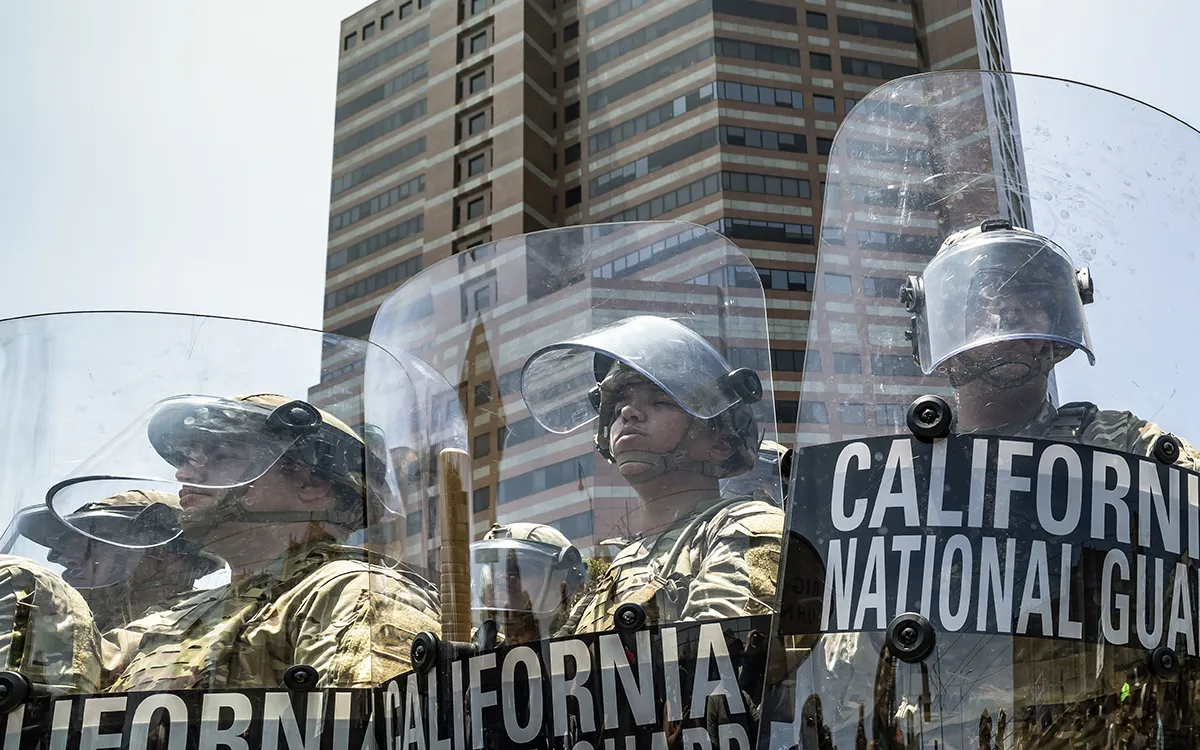
The ongoing legal challenge between California Governor Gavin Newsom and former President Donald Trump has raised critical questions regarding the deployment of the California National Guard to Los Angeles. The heart of the matter lies in who possesses the final authority to deploy military forces within state borders— the president or the governor. This legal dispute is set to be addressed in a federal court in San Francisco, with the first hearing scheduled to commence at 1:30 p.m. today.
The legal battle centers on Trump's recent decision to deploy National Guard troops to Los Angeles amid protests that erupted following federal immigration operations. Trump’s order came in response to what he described as “incidents of violence and disorder.” In total, the president has activated 4,000 National Guard members and 700 U.S. Marines, stating their role is to “temporarily protect” federal immigration enforcement officers as they conduct their operations.
Governor Newsom, alongside California Attorney General Rob Bonta, has vehemently opposed Trump's actions, labeling them as an overreach of presidential authority. In a powerful speech, Newsom drew parallels between Trump and historical authoritarian figures, emphasizing that such leaders often target vulnerable populations to consolidate power. “Trump and his loyalists thrive on division because it allows them to take more power,” Newsom stated, indicating his belief that military intervention would exacerbate tensions rather than restore order.
Legal experts have weighed in on the situation, with some, like Jessica A. Levinson, a constitutional law scholar at Loyola Marymount University, suggesting that proving the president’s authority is a challenging task for the governor. The Trump administration argues that the National Guard's deployment is necessary to restore order in Los Angeles, a city facing significant unrest.
The deployment of National Guard forces without a governor's request marks a significant departure from precedent. Historically, such actions have been rare, with only one previous instance of a president federalizing state National Guard troops without state approval. This was done by President Richard Nixon during the 1970 U.S. Postal Service strike, illustrating the delicate balance of power between state and federal authorities.
As the case unfolds, it will test the boundaries of executive power, with Newsom and Bonta emphasizing that the military presence in Los Angeles is unnecessary for maintaining peace. Their legal filing argues that civil unrest is a common occurrence and can be managed effectively by local and state authorities without military intervention.
The legal challenge received backing from two former service secretaries and six retired four-star generals and admirals, who expressed concern that the deployment could politicize the military and endanger troops. They argue that Trump's failure to invoke the Insurrection Act or to clearly define the military's role raises significant risks.
As the proceedings move forward, the judge assigned to the case, Charles Breyer, appointed by President Bill Clinton, will determine the legality of Trump’s actions. The outcome of this hearing could redefine the relationship between state governors and the federal government concerning military deployments in domestic situations.
Bonta has highlighted the rarity of legal precedents in this area, noting that challenging a president’s power to deploy troops without state approval is unprecedented. “This is not a section of the law that’s been subject to multiple opinions and has a lot of case law on it,” he remarked, underscoring the case's significance in shaping future executive authority.
As the hearing approaches, the legal landscape surrounding the deployment of the California National Guard to Los Angeles remains uncertain. The implications of this case extend far beyond California, potentially reshaping the understanding of federal power in domestic affairs and the autonomy of state governments. The decision rendered by the court could set a landmark precedent for future interactions between state and federal authorities regarding military deployments.